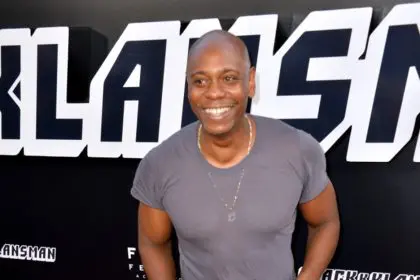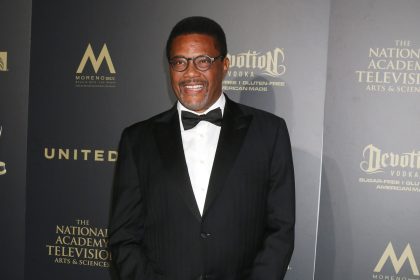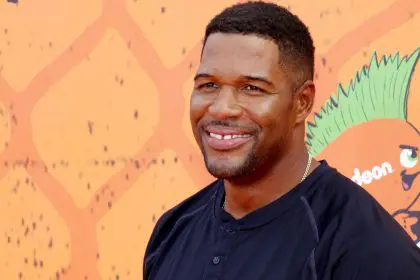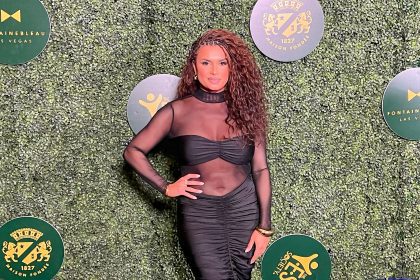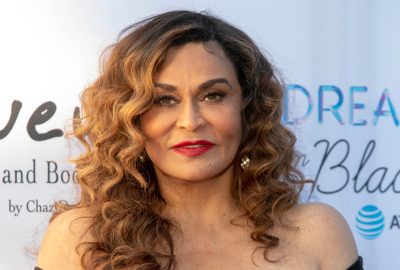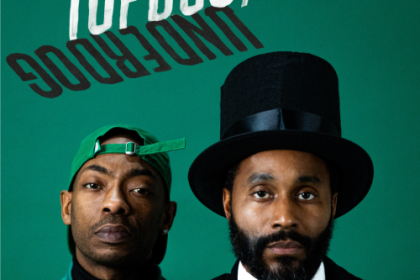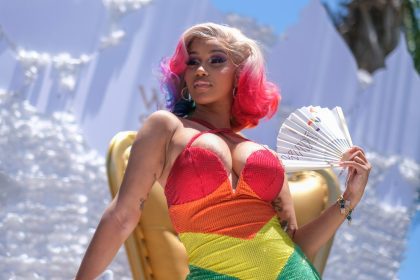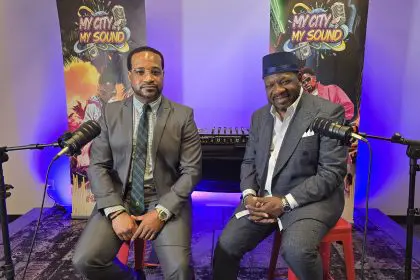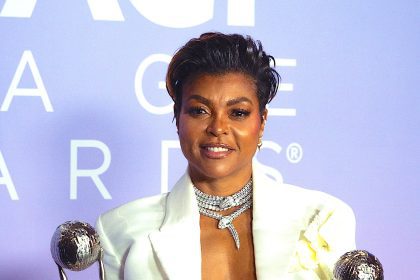
Katreese Barnes, musical director for the “Rosie O’Donnell” show, beams a positive energy so strong that it seems to warm the crisp Chicago afternoon. Clad in black, and wearing little makeup, Barnes saunters into the quaint Swim Café, orders a piping mug of cappuccino and casually divulges the secret of her successful career in show business.
Her secret? Follow your passion, and be limitless in your pursuits.
Barnes says the music has been her inspiration, and has taken her from classical piano lessons to “Saturday Night Live” skits.
“I started off as a classic pianist and I was inspired to play Bach, Mozart, Beethoven, Chopin, mostly, and then as I developed I started playing pop and R&B. Music is more inspirational than any one person because by the time I got to ‘Saturday Night Live,’ there was not really anyone who was a shining example for me. It just in the course I ended up taking in life.”
Barnes was the first African American music director of “Saturday Night Live” and she’s a pioneer in the post again at Oprah Winfrey Network’s “Rosie O’Donnell” show.

Barnes’ latest gig caps off an enviable career as a traveling musician (Barnes has toured with rock gods such as Sting), and a comedy writer-music director, a post she held for a decade at “Saturday Night Live.”
“On so many levels it was so unique,” Barnes says between a sip of cappuccino. “When I joined, Will Farrell, Tina Fey, Jimmy Fallon, Tracy Morgan, Chris Kattan, Darryl Hammond, that was the cast, and they were functioning on a very high level. And I joined as new as a comedy person, so I was definitely wowed by being around such great talent. It was intense.”
“Saturday Night Live” was intense indeed. First and foremost, is the Boys Club to contend with; a staple challenge for women of color in Hollywood. Barnes states that she wish she would have developed the mind-set to combat the negativity earlier in her career.
“There would be more psychological tools I would have tapped into early on in life to help with being a woman in the industry. The little demon that slips up on us when we look at all the various — isms, racism, sexism, ageism, or whatever it is, and you start to look up and you think, wow, there’s a lot of things to cope with in this industry.”
Barnes continues, “I have more of those psychological tools now than I did before. I would have sought out those tools so that my expectations would have been a little different.”
Barnes’ work hours were anything but ordinary; “It wasn’t just like a day it was more like a week, every day was different, and on Saturday it would all come together,” she explains.
“On Tuesday I would come in around midnight and start their music production for the show and finish it around Wednesday afternoon. Then we would have a table read on Wednesday, and all of those ideas had to be presented to the room, and if it was a big musical it had to be ready. And sometimes I would write five or six musical numbers overnight.”
Barnes adds, “I would sleep one or two hours at the most. I would sleep all day Tuesday, it wasn’t really good for health, but that was the only way I was able to do it and function.”

The back story was that Barnes was also out to prove a point. “I realized at Saturday Night Live, I was becoming Superwoman there. And I wasn’t doing it for myself; I was doing it to prove a point. The point I was trying to prove was that I can do this, I’m good enough, I’m better than that, and at the end of the day, when you started feeling taken for granted and you’re not recognized, you end up feeling, what did I do all of that for?
There’s a self-acceptance that I’m learning to see that you are what you are and if nobody can embrace it, then you don’t need to be there.”
In the midst of her Superwoman role, the comic writer-musician was stricken with breast cancer.
“The first time I was diagnosed, my brain was still embedded that there were cures out there that wasn’t as toxic and debilitating as chemo and radiation,” Barnes recalls. “And in my case, the process to find the right people and the right treatment was a long one. Once I did, the confidence I developed and the treatment that I did, made me realize that the fight wasn’t as debilitating and life-threatening as I thought it was. It was just a change of lifestyle.”
Cancer-free, and with the driven, sleepless nights behind her, Barnes has developed a theory. “We function on a level of mild depression that we’re not aware of, we’re used to coping with a lot of intensity in our lives without acknowledging its trauma or our stress. It could be depression; things that we need to change and we don’t know how. We’re used to toxic relationships, we’re used to functioning and accepting a lot of things that really are not acceptable, and that was my case too.”
The Black Superwoman Syndrome would work much better if sisters applied that “go above and beyond” mentality to themselves, Barnes adds.
“I don’t think there’s anything wrong with being superwoman as long as you’re being Superwoman for yourself. But when you’re doing it for other people, to prove things, it ends up really not supporting your life.
Working as a music director on a show did have its perks, however. “It’s a dream job for any musician who has had to tour and run all over the world to earn a living,” Barnes quips. “It was the first time in my life that I didn’t have to travel for a job. I realize that although the hours are taxing, it’s really easier for my lifestyle to not have to travel so much and be out of town. You’re not as connected with your friends and family when you’re traveling.”
The “Rosie O’Donnell” show is a breath of fresh air, Barnes says. “Rosie has her own brand of comedy, her own style which is very different from any woman I’m used to working with … she likes to improvise, therefore it’s a completely different challenge. And I love healthy challenges like that, because now I have learn to be in the moment, especially on camera, when she wants to do something live.”

The North Carolina native is enjoying her new home in Chicago as well, and is attempting to achieve some work-life balance. “I’ve never had it,” Barnes laughs out loud. “I went to a spinning class, something I just started last week and I’m sore as hell. And I’m going to continue doing it and because I have some goals now.”
Outside of spin class, Barnes will continue working full-time and composing her music. She anticipates bringing her production, Rocket Man, to the stage in Spring of 2012.
Katreese Barnes doesn’t believe in setting goals or professional limits, and encourages other women to do the same.
“The thing about the industry is that you never really know where your blessings come from because, like in my case, I wanted to be a recording artist but I ended up being a music director and a comedy writer,” she states.
“I think the blessing is to be able to do that kind a lifestyle where you’re a creative person full time and I’m open to what other new challenges and opportunities that may come my way. To limit myself would be a letdown to the universe. I’m going to shift to what the universe leads me to be.”
Katreese Barnes is on Twitter.

